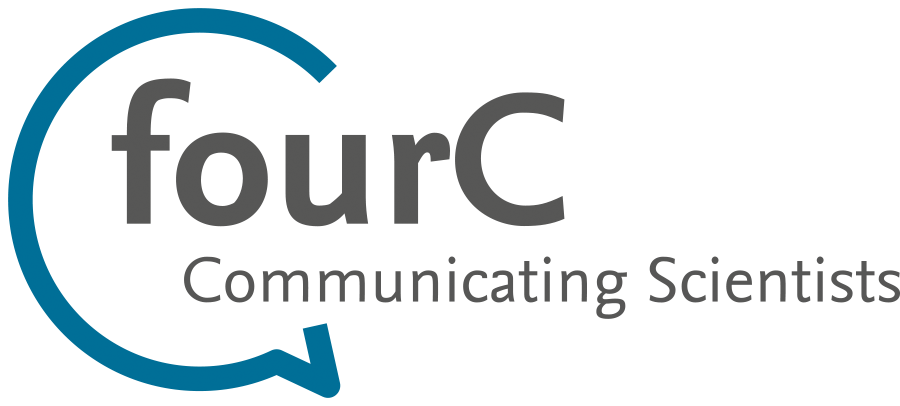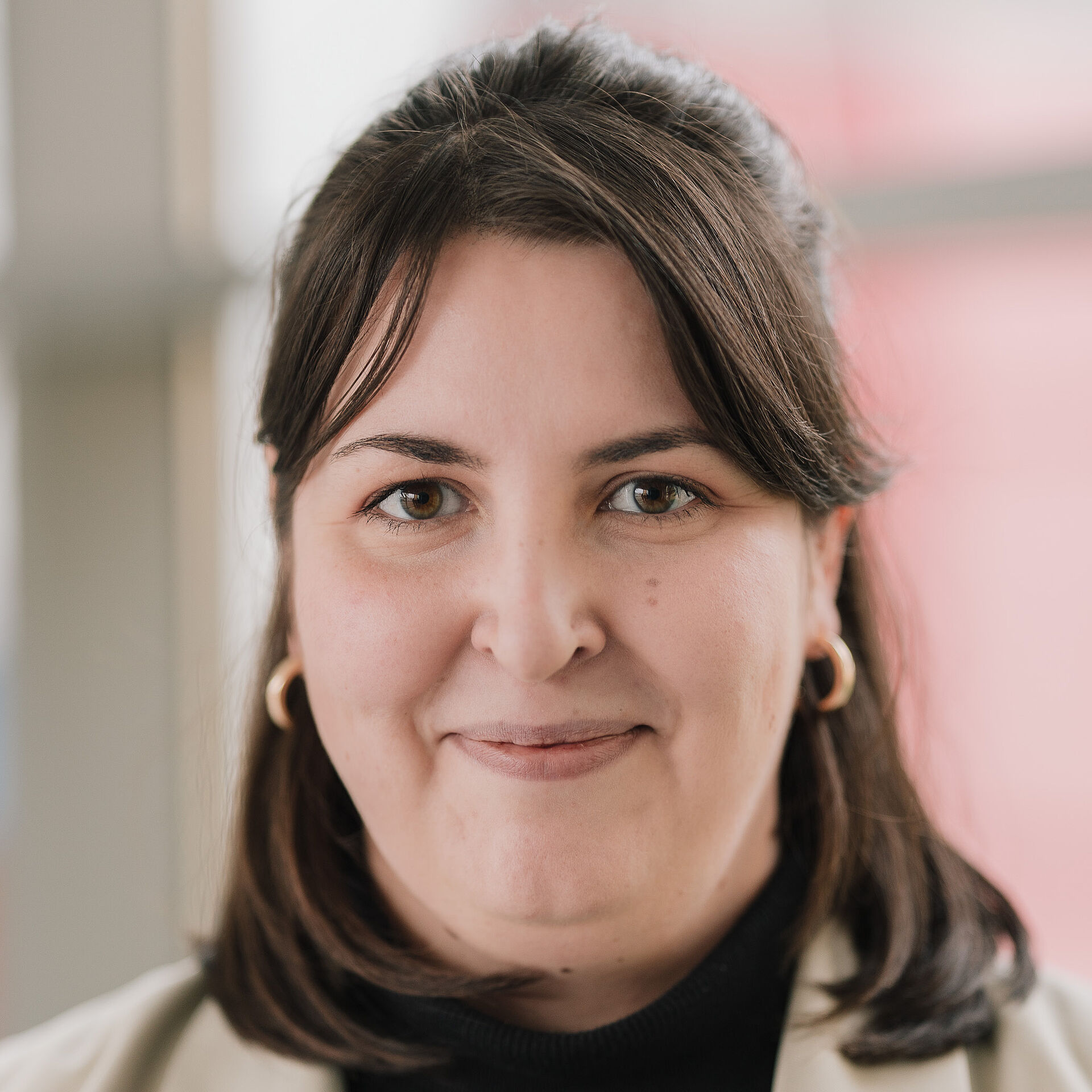Gastherausgeberschaften
Rosman, T., Edelsbrunner, P., Hendriks, F., Vaupotic, N., Wingen, T. (2025). Leveraging Psychological Insights for Effective Science Communication. Zeitschrift für Psychologie 233(1), 1–5. https://doi.org/10.1027/2151-2604/a000584
Jucks, R. & Hendriks, F. (2021). Introduction: Language and Communication Related to COVID-19. Journal of Language and Social Psychology, 40(5-6), 539–544. https://doi.org/10.1177/0261927X211045728
Artikel in Fachzeitschriften (Peer Reviewed)
Banse, L., Heinke, F. & Hendriks, F. (2026). Who supports STEM early career researchers' active science communication? A qualitative ego-network-analysis. Journal of Science Communication, 25(1), A02. https://doi.org/10.22323/156620251115064727
Hendriks, F. (2026). Trust in science amid a replication crisis. Current Opinion in Psychology, 68, 102250. https://doi.org/10.1016/j.copsyc.2025.102250
Banse, L.*, Fischer, L.*, & Hendriks, F. (2025). Tug of War or Pulling Together? Comparing Reciprocal Task Role Expectations of Professional Communicators and Scientists in Organizational Science Communication. International Journal of Strategic Communication (Online First). https://doi.org/10.1080/1553118X.2025.2566919 (* = shared first authorship)
Fick, J., Hendriks, F., & Thies, B. (2025). How to talk about science in ways that are comprehensible and interesting? Evaluation of an evidence-based science communication training program for graduate students. Frontiers in Education, 10:1558203. https://doi.org/10.3389/feduc.2025.1558203
Banse, L., Hendriks, F., & Taddicken, M. (2025). A New Obligation or a Natural Extension? STEM Scientists’ Science Communication in the Context of Their Professional Role Identities. Science Communication (Online First). https://doi.org/10.1177/10755470251341839.
Hendriks, F.*, Barel-Ben David, Y.*, Banse, L., Fick, J., Greussing, E., Klein-Avraham, I., Rakedzon, T., Taddicken, M, & Baram-Tsabari, A. (2025). Generative AI in Science Communication: Fostering Scientists’ Good Working Habits for Ethical and Effective Use. Science Communication (Online First). https://doi.org/10.1177/10755470251343486 (* = shared first authorship)
Momme, J. M., Hendriks, F., & Enzingmüller, C. (2025). From Participation to Trust? Understanding Trust Dynamics in Participatory Science Communication. Science Communication (Online First). https://doi.org/10.1177/10755470251333399
Fick, J., Rudolph, L., & Hendriks, F. (2025). Jargon avoidance in the public communication of science: Single- or double-edged sword for information evaluation? Learning and Instruction, 98, 102121. https://doi.org/10.1016/j.learninstruc.2025.102121
Fick, J., Hendriks, F., Kumpmann, N., & Thies, B. (2025). Teaching Science Communication to Master’s Students in STEM. European Journal of Psychology Open, 2673-8627/a000073. https://doi.org/10.1024/2673-8627/a000073
Hendriks, F., Janssen, I., & Jucks, R. (2023). Balance as credibility? How presenting one- vs. two-sided messages affects ratings of scientists’ and politicians’ trustworthiness. Health Communication, 38(12), 2757–2764. https://doi.org/10.1080/10410236.2022.2111638
Hendriks, F., & Bromme, R. (2022). Researchers’ Public Engagement in the Context of Interdisciplinary Research Programs: Learning and Reflection from Boundary Crossing. Science Communication, 44(6), 693–718. https://doi.org/10.1177/10755470221137052
Wintterlin, F., Hendriks, F., Mede, N. G., Bromme, R., Metag, J., & Schäfer, M. S. (2022). Predicting Public Trust in Science: The Role of Basic Orientations Toward Science, Perceived Trustworthiness of Scientists, and Experiences With Science. Frontiers in Communication, 6. https://doi.org/10.3389/fcomm.2021.822757
Janssen, I., Hendriks, F., & Jucks, R. (2021). Face Masks Might Protect You From COVID-19: The Communication of Scientific Uncertainty by Scientists Versus Politicians in the Context of Policy in the Making. Journal of Language and Social Psychology,40(5-6), 601–625. https://doi.org/10.1177/0261927X211044512
Menz, C., Spinath, B., Hendriks, F., & Seifried, E. (2021). Reducing educational psychological misconceptions: How effective are standard lectures, refutation lectures, and instruction in information evaluation strategies? Scholarship of Teaching and Learning in Psychology. Advance online publication. https://doi.org/10.1037/stl0000269
Hendriks, F.*, Seifried, E.*, & Menz, C. (2021). Unraveling the “Smart but Evil” Stereotype: Pre-service Teachers’ Evaluations of Educational Psychology Researchers versus Teachers as Sources of Information. Zeitschrift für pädagogische Psychologie, 35(2-3), 157–171. https://doi.org/10.1024/1010-0652/a000300 (* = shared first authorship)
Hendriks, F., Mayweg-Paus, E., Felton, M., Iordanou, K., Jucks, R., & Zimmermann, M. (2020). Constraints and Affordances of Online Engagement with Scientific Information—A Literature Review. Frontiers in Psychology, 11. https://doi.org/10.3389/fpsyg.2020.572744
Hendriks, F., & Jucks, R. (2020). Does Scientific Uncertainty in News Articles Affect Readers’ Trust and Decision-Making? Media and Communication, 8(2), 401–412. https://doi.org/10.17645/mac.v8i2.2824
Hendriks, F., Kienhues, D. & Bromme, R. (2020). Replication Crisis = Trust Crisis? The Effect of Successful vs. Failed Replications on Laypeople's Trust in Researchers and Research. Public Understanding of Science, 29(3), 270-288. https://doi.org/10.1177/0963662520902383
Hendriks, F., Kienhues, D., & Bromme, R. (2016). Disclose Your Flaws! Admission Positively Affects the Perceived Trustworthiness of an Expert Science Blogger. Studies in Communication Sciences, 16(2), 124–131. https://doi.org/10.1016/j.scoms.2016.10.003
Hendriks, F., Kienhues, D., & Bromme, R. (2016). Evoking Vigilance: Would You (Dis)Trust a Scientist Who Discusses Ethical Implications of Research in a Science Blog? Public Understanding of Science, 25(8), 992–1008. https://doi.org/10.1177/0963662516646048
Hendriks, F., Kienhues, D. & Bromme, R. (2015). Measuring Laypeople's Trust in Experts in a Digital Age: The Muenster Epistemic Trustworthiness Inventory (METI). PLoS ONE 10(10): e0139309. https://doi.org/10.1371/journal.pone.0139309
Buchkapitel, Beiträge in Sammelbänden und Konferenz-Archiven
Fick, J., Hendriks, F., Steegh, A. (2025). Diversität als Gegenstand und Kontextbedingung von Trainings zur Wissenschaftskommunikation. In: Ackermann, J., Gerlieb, A.-K., Barbutev, A.-S. (Hrsg.). Wissenschaftskommunikation und Gender: Chancen und Herausforderungen der Sichtbarkeit von Wissenschaftler*innen in sozialen und klassischen Medien. transcript. https://doi.org/10.14361/9783839411544
Hendriks, F. (2024). Vertrauen in Wissenschaft als Grundlage für und Ziel von Wissenschaftskommunikation. In: Braunschweigische Wissenschaftliche Gesellschaft (Hrsg.) Jahrbuch 2022 der Braunschweigischen Wissenschaftlichen Gesellschaft. Cuvillier Verlag.
Hendriks, F. (2024). Kompetent mit Wissenschaft im Alltag interagieren können. Zum Verhältnis von Wissenschaftsverständnis und informiertem Vertrauen. In: Graulich, N. & Arnold, J., Sorge, S., & Kubsch, M. (Hrsg.). Lehrkräftebildung von Morgen. Waxman. https://doi.org/10.31244/9783830997962.04
Bromme, R. & Hendriks, F. (2024). Trust in Science: Considering Whom to Trust for Knowing What is True. In: R. C. Mayer & B. M. Mayer (Eds.) A Research Agenda for Trust: Interdisciplinary Perspectives (pp. 37–49). Edward Elgar Publishing. https://doi.org/10.4337/9781802200942.00011
Hendriks, F., Distel, B., Engelke, K. M., Westmattelmann, D., & Wintterlin, F. (2021). Methodological and Practical Challenges of Interdisciplinary Trust Research. In B. Blöbaum (Ed.), Trust and Communication in a Digitized World: Empirical Results and Implications (pp. 29-57). Springer, Cham. https://doi.org/10.1007/978-3-030-72945-5_2
Hendriks, F., & Kienhues, D. (2019). Science understanding between scientific literacy and trust: contributions from psychological and educational research. In A. Leßmöllmann, M. Dascal, & T. Gloning (Eds.), Science Communication (pp. 29–50). De Gruyter. https://doi.org/10.1515/9783110255522-002
Hendriks, F., Kienhues, D., & Bromme, R. (2016). Trust in Science and the Science of Trust. In B. Blöbaum (Ed.), Trust and Communication in a Digitized World. Models and Concepts of Trust Research (pp. 239–251). Springer. https://doi.org/10.1007/978-3-319-28059-2
Westphal, S., Hendriks, F., & Malik, M. (2015). Vertrauenswürdigkeit ohne Vertrauen? Wie die Kommunikation wissenschaftlicher Unsicherheiten die Bewertungen und Entscheidungen von Rezipienten beeinflusst. In Schäfer, M. S., Kristiansen S., Bonfadelli, H. (Ed.): Wissenschaftskommunikation im Wandel (pp. 342–365). Herbert von Halem.
Online-Publikationen
Momme, J. M., Hendriks, F., & Enzingmüller, C. (2025). Vertrauen durch Mitgestalten? Was Partizipation in der Wissenschaftskommunikation mit Vertrauen in Wissenschaft zu tun hat. In: The Inquisitive Mind (In-Mind). https://de.in-mind.org/blog/post/vertrauen-durch-mitgestalten-was-partizipation-in-der-wissenschaftskommunikation-mit
Mede, N. & Hendriks, F. (2024). Auch die Forschung zur Wissenschaftskommunikation verdient Gehör! In: wissenschaftskommunikation.de. https://www.wissenschaftskommunikation.de/auch-die-forschung-zur-wissenschaftskommunikation-verdient-gehoer-76731/
Hendriks, F., Banse, L., & Fick, J. (2023). Wie können Wissenschaftler*innen dazu motiviert und befähigt werden, im Bereich Wissenschaftskommunikation aktiv zu werden? — Ein Forschungsüberblick. Berlin: Transfer Unit Wissenschaftskommunikation. https://transferunit.de/thema/wie-koennen-wissenschaftlerinnen-zu-wissenschaftskommunikation-motiviert-und-befaehigt-werden/
Hendriks, F. (2022). Wissenschaftskommunikation in der COVID-19 Pandemie und ihr Umgang mit Unsicherheit und öffentlichem Vertrauen. In: Lohse, D., Knobloch, J. (Hrsg.) Workshop: Wissenschaft und Politik in der Pandemie - Lektionen der COVID-19 Krise; Logbuch. https://nbn-resolving.org/urn:nbn:de:0168-ssoar-85825-1
Hendriks, F. (2021). Evaluation von den Zielen her denken! In: wissenschaftskommunikation.de. https://www.wissenschaftskommunikation.de/evaluation-von-den-zielen-her-denken-46995/
Hendriks, F. (2021). Expertise, Integrität und Wohlwollen – Rückschlüsse aus dem Wissenschaftsbarometer 2021. In: wissenschaftskommunikation.de. https://www.wissenschaftskommunikation.de/expertise-integritaet-und-wohlwollen-rueckschluesse-aus-dem-wissenschaftsbarometer-2021-53289/
Dunwoody, S., Hendriks, F., Massarani, L. & Peters, H. P. (2018). How journalists deal with scientific uncertainty and what that means for the audience. Retrieved from the PCST Archive of Conference Papers: https://www.pcst.network/document/how-journalists-deal-with-scientific-uncertainty-and-what-that-means-for-the-audience/
Hendriks, F. (2018). Strapaziertes Vertrauen. In: wissenschaftskommunikation.de. https://www.wissenschaftskommunikation.de/strapaziertes-vertrauen-17545/
Hendriks, F. (2017). Vertrauen in die Wissenschaft – blind oder kritisch? In: wissenschaftskommunikation.de. https://www.wissenschaftskommunikation.de/vertrauen-in-die-wissenschaft-blind-oder-kritisch-6437/

